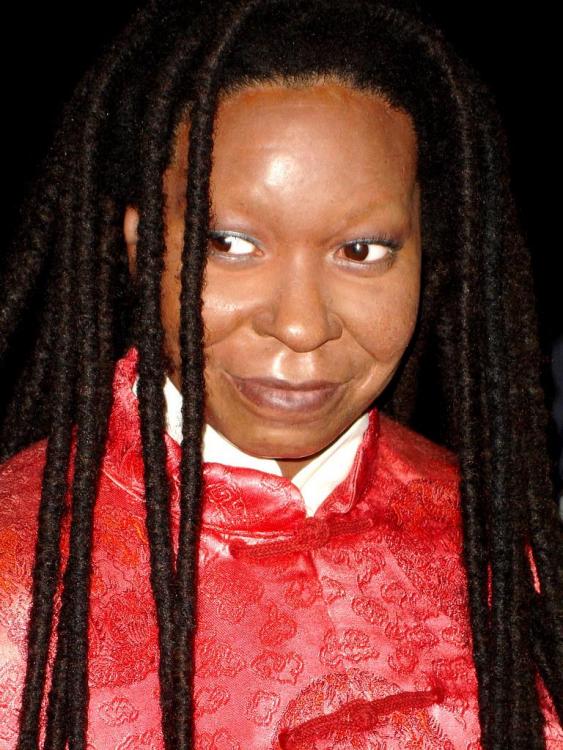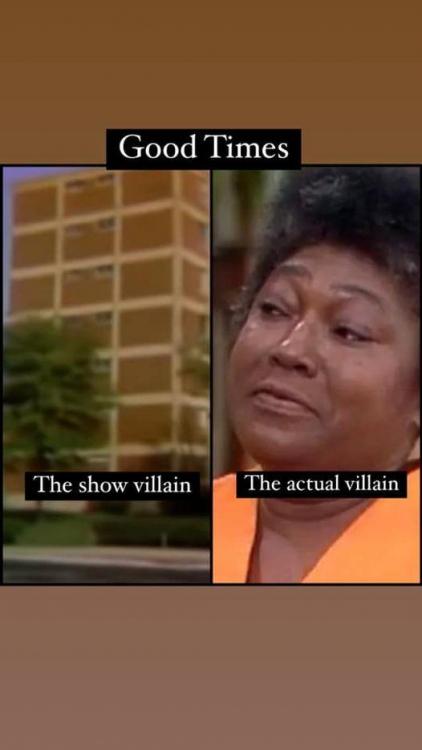-
Posts
2,374 -
Joined
-
Last visited
-
Days Won
90
Content Type
Profiles
Forums
Blogs
Events
Status Replies posted by richardmurray
-
symbol of the unconquered was on TCM, I already taped it years back but it involves the story of a yella/mulatto woman who is the sole inheritor of land. She goes west and is terrorized by a yella/mulatto man, who despises blacks. She runs into the forests and finds a black man who thinks she is white. They become friends and after a battle between the black and mulatto man, the black man ends up financially wealthy, surviving, the mulatto man and the kkk and he ends up marrying the woman he thought white who is yella.But I relaly wish a compare and contrast to passing can come out with this film.oh, if you ever see the rape scene in within our gates, i find it interesting how visual or combative it is compared to most rape scenes in hollywood. Rape in hollywood tends to always be very dominant for the rapists.
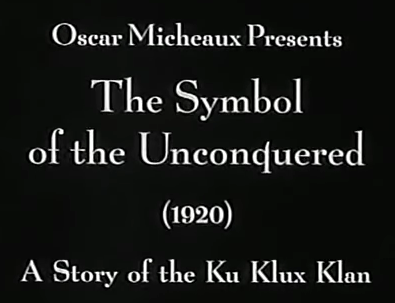
-
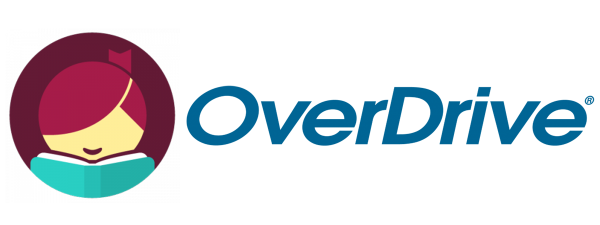
OverDrive: Record Number of Libraries Hit Million Digital Lend Mark
Leading library service provider OverDrive this week reported < https://company.overdrive.com/2022/01/12/over-120-library-systems-reach-1-million-digital-checkouts-in-2021/ > that a total of 121 public libraries and consortia across seven countries and 37 U.S. states surpassed one million digital lends in 2021. The number represents a significant jump from 2020, when 102 libraries hit the mark < https://company.overdrive.com/2021/01/12/over-100-public-libraries-exceed-1-million-digital-book-checkouts-in-2020/> , although more libraries (29) joined the million+ club in 2020.
According to OverDrive officials, 22 library systems made more than one million loans in 2021, with the Toronto Public Library leading the pack for a ninth consecutive year, while also achieving a new record for digital loans with nearly 10 million digital titles circulated.
The Los Angeles Public Library retained the #1 U.S. public library position for the third year in a row. In addition, for the first time, students from four K-12 school districts in 2021 accessed more than one million digital books with Sora, OverDrive’s student reading app.
In a blog post, OverDrive officials noted that libraries in 2021 continued to provide "a vital service to their communities during the COVID-19 pandemic," enabling library patrons "to safely seek and enjoy books from home." In addition, the growth in digital book clubs like Big Library Read "connected readers from across the globe" and promoted books and reading.
Last week, OverDrive reported that in 2021 digital lends surpassed the half a billion mark for the first time, a 16% jump over 2020.
The complete list of 2021 Million+ Circulation libraries can be found here<https://company.overdrive.com/2022/01/12/over-120-library-systems-reach-1-million-digital-checkouts-in-2021/> . The top circulating digital ebooks, audiobooks and magazines can be found here <https://company.overdrive.com/2022/01/05/public-libraries-and-schools-surpass-half-a-billion-digital-book-loans-in-2021/ > .
OverDrive's 2021 Top 10 library Systems in total digital circulations (e-books, audiobooks and magazines)
- Toronto Public Library
- National Library Board Singapore
- Los Angeles Public Library
- King County Library System (WA)
- New York Public Library
- Multnomah County Library (OR)
- Seattle Public Library
- Harris County Public Library (TX)
- Calgary Public Library (AB, Canada)
- Mid-Continent Public Library (MO)
OverDrive Library systems achieving Million+ Circulation status for digital books for the first time in 2021:
- Arkansas Digital Library Consortium
- eIndiana Digital Consortium
- Albuquerque Bernalillo County Library System
- Dayton Metro Library
- Fraser Valley Regional Library
- Nebraska OverDrive Libraries
- Winnipeg Public Library
- Western Australia Public Libraries
- Indiana Digital Download Center
- Fort Worth Public Library
- Jacksonville Public Library
- Brisbane City Council Library Services
- Okanagan Regional Library (Canada)
- Louisville Free Public Library
- Libraries NI (Northern Ireland)
- Baltimore County Public Library
- Kent District Library
- The Libraries Consortium (UK)
- Verbund Öffentlicher Bibliotheken (VÖBB) Berlin
- Houston Public Library
- Georgia Download Destination
- MELSA: Twin Cities Metro eLibrary
ARTICLE
-
Mel Hopkins < https://aalbc.com/tc/profile/18-mel-hopkins/ > said on the post < https://aalbc.com/tc/topic/8495-what-do-you-want-out-of-life/ >
Mel Hopkins said:
To know what purpose the human species serves. It appears every other species are caretakers of this planet - and accomplishes their role in the ecosystem. I'd like to know the human's purpose.Click and drag to move
MY REPLY
the purpose of the human species in relation to earth is like all other children of earth, to live on earth.
The great problem with humans is the idea that earth can be killed by humans, it can't. If all the nuclear bombs went off and tons of pollution was made, the earth will not die. Many children of earth will die, but not the earth. The earth, like any lifeform, will heal itself. IT will take the earth a while but it will eventually.
-
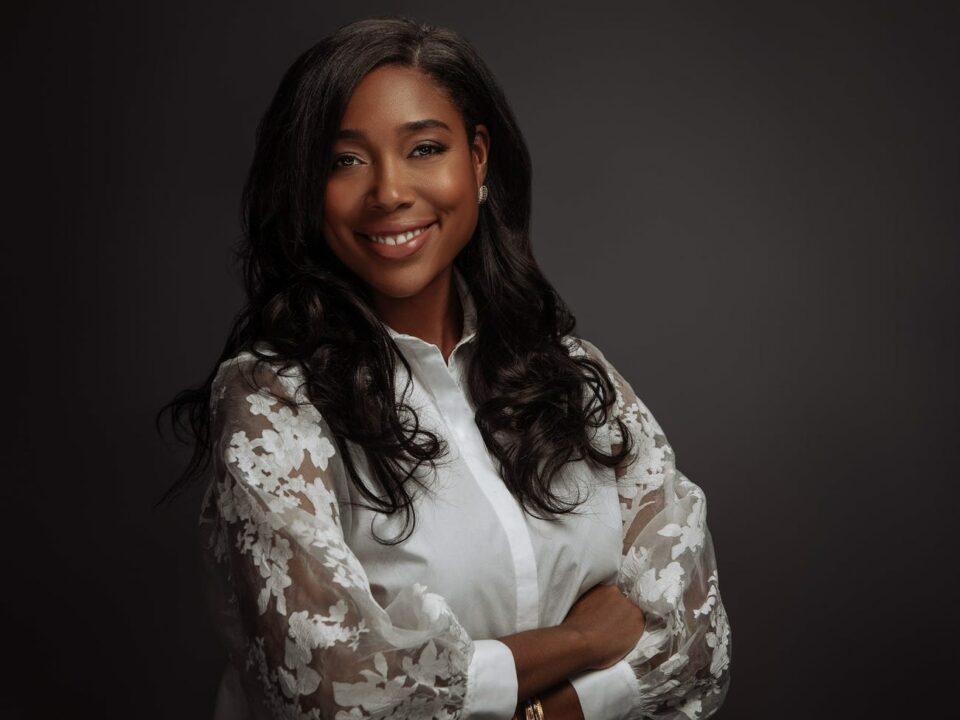
THIS MILLENNIAL BOUGHT EBONY AND JET FOR $14M WITH PLANS TO BRING THE MAGAZINES INTO THE DIGITAL ERA
by Dawn OnleyAugust 11, 2021
Founded in 1945 by John Johnson, Ebony struggled under declining advertisements, financial troubles, and controversy a few years ago. It was quite a shift from the magazine’s heyday, when Ebony and sister magazine, Jet, were the go-to publications for people interested in reading about Black culture, notable Black leaders, and issues impacting Black people.The company eventually filed for bankruptcy, and by 2019, both Ebony and Jet had stopped printing. This was an opportunity for Bridgeman and her father, former NBA player and entrepreneur Ulysses Junior Bridgeman, to discuss the magazine with the family to gauge interest in purchasing.
Bridgeman told Business Insider she jumped at the opportunity. The family purchased the legendary pubs for $14 million — and Bridgeman began talking with Michelle Ghee, a former executive at CNN and BET, about serving as CEO. Together, they relaunched Ebony on March 1 and are planning a relaunch of Jet later this year.
Ebony’s new mission is to be bold, brilliant, and beloved. Both magazines are now fully digital with no plans on reprinting physical copies.
According to Business Insider, Ebony has at least a dozen people on staff. Bridgeman’s role has been all-encompassing — from calls with advertisers to meetings with potential partners and magazine contributors.
“You have to understand every aspect within the business,” Bridgeman told BI. “You show up in a way that people feel they can approach you. They feel that they can work with you, not only just for you.”
Bridgeman’s strategy has seen her touting the power of the Black dollar to potential advertisers. “You are going to want to tap into that power,” she tells them, according to Business Insider.
https://www.blackenterprise.com/this-millennial-owner-bought-ebony-and-jet-for-14m-with-plans-to-bring-the-magazines-into-the-digital-era/
-
Mel Hopkins < https://aalbc.com/tc/profile/18-mel-hopkins/ > said on the post < https://aalbc.com/tc/topic/8495-what-do-you-want-out-of-life/ >
Mel Hopkins said:
To know what purpose the human species serves. It appears every other species are caretakers of this planet - and accomplishes their role in the ecosystem. I'd like to know the human's purpose.Click and drag to move
MY REPLY
the purpose of the human species in relation to earth is like all other children of earth, to live on earth.
The great problem with humans is the idea that earth can be killed by humans, it can't. If all the nuclear bombs went off and tons of pollution was made, the earth will not die. Many children of earth will die, but not the earth. The earth, like any lifeform, will heal itself. IT will take the earth a while but it will eventually.
-

THIS MILLENNIAL BOUGHT EBONY AND JET FOR $14M WITH PLANS TO BRING THE MAGAZINES INTO THE DIGITAL ERA
by Dawn OnleyAugust 11, 2021
Founded in 1945 by John Johnson, Ebony struggled under declining advertisements, financial troubles, and controversy a few years ago. It was quite a shift from the magazine’s heyday, when Ebony and sister magazine, Jet, were the go-to publications for people interested in reading about Black culture, notable Black leaders, and issues impacting Black people.The company eventually filed for bankruptcy, and by 2019, both Ebony and Jet had stopped printing. This was an opportunity for Bridgeman and her father, former NBA player and entrepreneur Ulysses Junior Bridgeman, to discuss the magazine with the family to gauge interest in purchasing.
Bridgeman told Business Insider she jumped at the opportunity. The family purchased the legendary pubs for $14 million — and Bridgeman began talking with Michelle Ghee, a former executive at CNN and BET, about serving as CEO. Together, they relaunched Ebony on March 1 and are planning a relaunch of Jet later this year.
Ebony’s new mission is to be bold, brilliant, and beloved. Both magazines are now fully digital with no plans on reprinting physical copies.
According to Business Insider, Ebony has at least a dozen people on staff. Bridgeman’s role has been all-encompassing — from calls with advertisers to meetings with potential partners and magazine contributors.
“You have to understand every aspect within the business,” Bridgeman told BI. “You show up in a way that people feel they can approach you. They feel that they can work with you, not only just for you.”
Bridgeman’s strategy has seen her touting the power of the Black dollar to potential advertisers. “You are going to want to tap into that power,” she tells them, according to Business Insider.
https://www.blackenterprise.com/this-millennial-owner-bought-ebony-and-jet-for-14m-with-plans-to-bring-the-magazines-into-the-digital-era/
-

THIS MILLENNIAL BOUGHT EBONY AND JET FOR $14M WITH PLANS TO BRING THE MAGAZINES INTO THE DIGITAL ERA
by Dawn OnleyAugust 11, 2021
Founded in 1945 by John Johnson, Ebony struggled under declining advertisements, financial troubles, and controversy a few years ago. It was quite a shift from the magazine’s heyday, when Ebony and sister magazine, Jet, were the go-to publications for people interested in reading about Black culture, notable Black leaders, and issues impacting Black people.The company eventually filed for bankruptcy, and by 2019, both Ebony and Jet had stopped printing. This was an opportunity for Bridgeman and her father, former NBA player and entrepreneur Ulysses Junior Bridgeman, to discuss the magazine with the family to gauge interest in purchasing.
Bridgeman told Business Insider she jumped at the opportunity. The family purchased the legendary pubs for $14 million — and Bridgeman began talking with Michelle Ghee, a former executive at CNN and BET, about serving as CEO. Together, they relaunched Ebony on March 1 and are planning a relaunch of Jet later this year.
Ebony’s new mission is to be bold, brilliant, and beloved. Both magazines are now fully digital with no plans on reprinting physical copies.
According to Business Insider, Ebony has at least a dozen people on staff. Bridgeman’s role has been all-encompassing — from calls with advertisers to meetings with potential partners and magazine contributors.
“You have to understand every aspect within the business,” Bridgeman told BI. “You show up in a way that people feel they can approach you. They feel that they can work with you, not only just for you.”
Bridgeman’s strategy has seen her touting the power of the Black dollar to potential advertisers. “You are going to want to tap into that power,” she tells them, according to Business Insider.
https://www.blackenterprise.com/this-millennial-owner-bought-ebony-and-jet-for-14m-with-plans-to-bring-the-magazines-into-the-digital-era/
-

The issue is about the definition or usage of marriage as a communal construct. A subsidiary issue is the variance in said definition or usage in financial tiers in the black community.
What is the definition of marriage?
Some say it is when a man <defined as someone born with a penus> side a woman <defined as someone born with a vagina> decide to join eternally. Some say it is when a pastor as a christian church performs a ritual. Some say it is when a registration form from a government is issued. Some say it is natural law. Outside humanity, other children of earth have from ancient times lovingly or legitimately married in all forms: the entirety of life <eagles>, brave premortem <spiders> legendary multispousal <lions> proud single parenthood <tigers>, or more. I say marriage is as those involve want it to be. The imposition of the outsider to those in a marriage is the great flaw. to restate, if you wish to marry one way, why are others forced to use your method or be judged by your method.
The usage of marriage in non humans is ancient and like humans inconsistency exists. Non humans have many examples of mating outside species so that can be deemed no other than the variable forms in humans. Over time things can change. In the same way, many lions will not have a pride their entire life or lose a pride for the remaining years of their life. A human can be married in a christian fashion, and then end their life in common law.
SEquentially, the definition or usage of marriage doesn't have a standard, should not be viewed as something to gain concensus on or have a respectable form. It is for the marred to define or use, all others outside a marriage , if they want to do something positive, wish well, if they want to do something negative, judge or make determinants
Now, the last issue pertains well to Rihanna and that is marriage in financial tiers of the black community. History matters. For most of the post war between the states years in the usa, the financial aristocracy in the black community was over ninety percent male + christian. But today, in the year 2022, the financial aristocracy of the black community in the usa is not ninety percent male + christian. Said fiscal aristocracy has women, muslims, areligious, and yes... black people in the collage of independent or disconnected races called LGBTQ+. What does this mean for the fiscal wealthy? their attachments to the common marriage culture of black fiscal aristos dominant in the past is dead. And, in the usa, one other factor exists. The financial legality of divorce. In the usa divorce is a mess when one has money. It is a way for lawyers to make tons of money and a way for media to gain tons of clicks and should be avoided by anyone with money. But what is the only way to avoid that, while still having children, a marriage , comfortable home, is to not get married through the government or religion. And, to be blunt, absent a piece of paper from a government or clergy, if you live with someone, with the intimacy plus fights and possibly the children, that is called marriage. The good news is that using forms of marriage defined outside the christian community or government means breaking up is easier. And anyone who has been in relationships knows, breakups can happen.
So, I wish Rihanna side the baby, side her partner, all the best in the world.
FORUM QUERY
-
I looked at two forum posts concerning whoopi goldberg and none focused on the point, what did WHoopie Goldberg say and was it the truth
What did WHoopie Goldberg say, I paraphrase close to a quote: "Why are they upset over nudity more than the holocaust...Well, this is White people doing it to White people, so y'all gonna fight amongst yourselves,...If you're going to do this, then let's be truthful about it because the Holocaust isn't about race....man's inhumanity to man...its about two White groups of people... your missing the point, it's about how people treat each other... if your worried about Maus, they are not going to say it is about me, they are going to say, I don't want to be like that"
So, what were Whoopie's points?
1)The people who want to ban MAus's book are more interested in nudity than the violence between human beings?
2)THe violence between human beings in Maus book is more of an issue than the nudity
3)The actions of the National socialist party of germany concerning the holocaust or in general within germany was about white people to white people.
4)White people fight amongst themselves
5)The holocaust isn't about race
6)The holocaust is about man's inhumanity to man
7)The holocaust is about two groups of white people
8)Children reading the book will not ponder about the inter human violence, they will not want to be the abused.What is the truth in each point?
1) Truth, the people banning "Maus" are stating the primary reason is nudity, in a modern media where nudity is rampant. Either they are lying , and they want to ban a book that speaks on the holocaust or racial issues, or they are fanatic about an issue, nudity in public, that in the modern USA is near impossible to fight off.
2) False, neither is an issue. Books , like all forms of art, are not obliged to many anyone comfortable but the writer and the reader who wishes to or continues to read.
3) Truth, most of the people in germany are white, regardless of their religious race. Sequentially, this is an issue within the phenotypical race commonly called white.
4) Truth, the Nazi party of the USA was as emboldened to follow Hitler as any other Nazi party throughout the world.
5) False, the holocause is about religious race. It isn't about phenotypical race. White jews are jews, while also white. A White christian in germany can say a white jew is not german, as german is a label for three seperate races. A geographic/cultural/linguistic race.
6) False, All of war is about human negativity towards other humans but not inhumanity. Cruelty/savagery/slavery are negative things but not inhuman things. When a male lion defeats another male lion and kills a cub of the defeated lion, that is not an inlion act. Nor does it mean the victorious lion is a sinner or evil. The point of power is to be powerful. To continue your line while the others end. The goal of the NAzi's concerning their murder sprees was erasing those not deemed appropriate for Nazi german, by there standards, who lived in Nazi Germany. They wanted a germany free of jews/romani/midgets. The USA itself had many an eugenics program. The goal is to kill some bloodline and continue others. It isn't inhuman but it is very negative for those whose bloodlines are at risk.
7) Truth, the white jew in germany side the white nazi , comprehend that white jews existed in nazi germany as collaborators. Sequentially, even the Nazi party of germany thought white jews had a positive function that was worth not killing them.
 Truth, the role of parents is to guide children. In the USA most parents guide children to not be the abused. It isn't about character, it is about power. Be the slave master, not the slave. The slave master may be disliked but the slavemaster is free, the slavemaster controls their life.
Truth, the role of parents is to guide children. In the USA most parents guide children to not be the abused. It isn't about character, it is about power. Be the slave master, not the slave. The slave master may be disliked but the slavemaster is free, the slavemaster controls their life.
In conclusion, I see five true points and three false points in Whoopie's statements. An employer has the right to suspend or fire an employee , if the contract doesn't protect the employee, based on their literature. Freedom of speech for most jobs in the usa historically doesn't protect the laborer from the firm's negative appraisals.
All the talk about the person of whoopie goldberg or the potency of the white jewish community is invalid to the issue.Read an article concerning book banning from an authors lips
https://aalbc.com/tc/profile/6477-richardmurray/?status=1757&type=statusFORUM POST- to read views
https://aalbc.com/tc/topic/8512-whoopi-goldberg-suspension/
-
I looked at two forum posts concerning whoopi goldberg and none focused on the point, what did WHoopie Goldberg say and was it the truth
What did WHoopie Goldberg say, I paraphrase close to a quote: "Why are they upset over nudity more than the holocaust...Well, this is White people doing it to White people, so y'all gonna fight amongst yourselves,...If you're going to do this, then let's be truthful about it because the Holocaust isn't about race....man's inhumanity to man...its about two White groups of people... your missing the point, it's about how people treat each other... if your worried about Maus, they are not going to say it is about me, they are going to say, I don't want to be like that"
So, what were Whoopie's points?
1)The people who want to ban MAus's book are more interested in nudity than the violence between human beings?
2)THe violence between human beings in Maus book is more of an issue than the nudity
3)The actions of the National socialist party of germany concerning the holocaust or in general within germany was about white people to white people.
4)White people fight amongst themselves
5)The holocaust isn't about race
6)The holocaust is about man's inhumanity to man
7)The holocaust is about two groups of white people
8)Children reading the book will not ponder about the inter human violence, they will not want to be the abused.What is the truth in each point?
1) Truth, the people banning "Maus" are stating the primary reason is nudity, in a modern media where nudity is rampant. Either they are lying , and they want to ban a book that speaks on the holocaust or racial issues, or they are fanatic about an issue, nudity in public, that in the modern USA is near impossible to fight off.
2) False, neither is an issue. Books , like all forms of art, are not obliged to many anyone comfortable but the writer and the reader who wishes to or continues to read.
3) Truth, most of the people in germany are white, regardless of their religious race. Sequentially, this is an issue within the phenotypical race commonly called white.
4) Truth, the Nazi party of the USA was as emboldened to follow Hitler as any other Nazi party throughout the world.
5) False, the holocause is about religious race. It isn't about phenotypical race. White jews are jews, while also white. A White christian in germany can say a white jew is not german, as german is a label for three seperate races. A geographic/cultural/linguistic race.
6) False, All of war is about human negativity towards other humans but not inhumanity. Cruelty/savagery/slavery are negative things but not inhuman things. When a male lion defeats another male lion and kills a cub of the defeated lion, that is not an inlion act. Nor does it mean the victorious lion is a sinner or evil. The point of power is to be powerful. To continue your line while the others end. The goal of the NAzi's concerning their murder sprees was erasing those not deemed appropriate for Nazi german, by there standards, who lived in Nazi Germany. They wanted a germany free of jews/romani/midgets. The USA itself had many an eugenics program. The goal is to kill some bloodline and continue others. It isn't inhuman but it is very negative for those whose bloodlines are at risk.
7) Truth, the white jew in germany side the white nazi , comprehend that white jews existed in nazi germany as collaborators. Sequentially, even the Nazi party of germany thought white jews had a positive function that was worth not killing them.
 Truth, the role of parents is to guide children. In the USA most parents guide children to not be the abused. It isn't about character, it is about power. Be the slave master, not the slave. The slave master may be disliked but the slavemaster is free, the slavemaster controls their life.
Truth, the role of parents is to guide children. In the USA most parents guide children to not be the abused. It isn't about character, it is about power. Be the slave master, not the slave. The slave master may be disliked but the slavemaster is free, the slavemaster controls their life.
In conclusion, I see five true points and three false points in Whoopie's statements. An employer has the right to suspend or fire an employee , if the contract doesn't protect the employee, based on their literature. Freedom of speech for most jobs in the usa historically doesn't protect the laborer from the firm's negative appraisals.
All the talk about the person of whoopie goldberg or the potency of the white jewish community is invalid to the issue.Read an article concerning book banning from an authors lips
https://aalbc.com/tc/profile/6477-richardmurray/?status=1757&type=statusFORUM POST- to read views
https://aalbc.com/tc/topic/8512-whoopi-goldberg-suspension/
-

the title of the post is
Crime and Enforcement Activity in New York City (Jan 1 – Dec 31, 2020)
The post body is
Why don't you use the terms white on white crime or asian on asian crime?These are not the same issues at all in my view.
I will do them one by one,
1)
Statistics of Crime plus enforcement activity in any time frame
I read the introduction of the pdf report< https://www1.nyc.gov/assets/nypd/downloads/pdf/analysis_and_planning/year-end-2020-enforcement-report-20210721.pdf > shared , like all statistics,all statistics, it is by default misleading in a way.
I quote said pdf using quotations and comment using brackets
"Crime Complaint Reports contain information on the crime victims’ race and ethnicity as recorded by the officers or precinct clerical staff interviewing the victim or complainant. "
<<A complainant is recorded as a crime victim. That is the first problem. Complaining is not being a victim or being criminally acted upon. Complaining can be someone calling law enforcement about activity in a neighbor's house, that offers no crime toward them. >>
" The victim’s description of any non-arrested suspects will also be recorded on the crime complaint report. "
<<the prior sentence already stated that a crime viction can be a complainant, sequentially, if someone is complaining about a group of black people or suspected black people, the law enforcer will record that. But that means the statistics on potential offenders is by default erroneous>>
" Arrests made by the responding officers will be recorded on an arrest report associated with the crime complaint report and used to initiate the booking system. "
<<The question is obvious, if an arrest is made and the race is not the same as the suspect both are recorded. So a disconnect exists between the suspect count and arrest count>>
"Additional information was drawn from a separate Homicide and Shooting Database that collects additional statistical information for Murder and Shooting incidents."
<<Homicide and shooting's do not or do not have to use the mentioned style of statistical record keeping. More importantly, the illegal or criminal activity, not the same thing, that does not involve murder or shooting which is most crimes or illegal activity in NYC is based on the defined system.>>
"The crime complaint and arrest data contained in this report represent crimes occurring from January 1, 2020 thru December 31, 2020 for the general crime complaint and arrest data (compiled on January 22, 2020). The Murder and Shooting tables and charts are also based on incidents that occurred through December 31, 2020 as are the statistics presented for Firearm arrests (compiled on January 15, 2020)"
<<None shooting or homicide crimes re from january 1st 2020 to december 31st 2020, while homicide or shooting crimes has an unstated beginning but ends at december 31st 2020, that is a clear statistical manipulation>>
"Stop Question and Frisk data and Violent Crime Suspect information are taken from the New York City Police Department’s Stop, Question and Frisk Database which is also the source of the quarterly report on Stop Question and Frisk Activity supplied to the New York City Council for all 4 quarters 2020"
<<In the financial world the quaters of a year can begin in the prior year, no clarification of when quarters begin or end is stated so the stop and frisk data has a clarification issue based on this descriptive segment. IT is assumption to assume the four quarters involve in one calendar year, they don't have to>>
"Commercial victimizations are generally noted on crime complaint reports and are excluded from the statistics dealing with specific categories of crime"
<<Crimes against businesses are excluded from statistics dealing with specific categories of crime... means they have disconnected relevant information in these statistics. To which specific crimes, they do not say.>>
"However it is likely that a small number of commercial victimizations may be inadvertently included in the victim data when a report is not properly classified as a commercial victimization.Those cases would generally present the race/ethnicity of employees as the crime victims."
<<So crimes against a business are excluded from specific categories of crime and are not placed in victim data. Thus, crimes against businesses can't be used for this report if the crime doesn't involve a murder or shooting , which use an unstated set of rules, since a business is usually not stated as a victim>>
" The arrest statistics presented here do not include arrests made by federal agencies"
<<So arrests in the financial sector of NYC, that fall under the securities and exchange commission which happen every day are not in these records, arrests in the immigration sector under federal jurisdiction like I.C.E. are not in these records. Federal law enforcement actions against terrorist is not in these records. Federal action against illegal drug shipments or transactions are not included in these transactions. The federal law enforcement does many arrests in these fields per day in NYC, none of them being in these reports that supposedly represent an overall law enforcement review is dysfunctional>>
" Crime complaint reports that were recorded during calendar year 2020 but report an incident occurring in prior years are excluded from these iistatistics. Arrest reports included in these statistics do include arrests made during calendar year 2020 for incidents that may have occurred in prior years"
<<Arrests statistics could had been made from complaints from prior years, but the complaints are in 2020. Thus a huge disconnect between arrest statistics and complaint statistics>>
"Black Hispanic and White Hispanic categories have been combined into a single Hispanic category for the statistical tables and charts presented in this report.The categories of Black and White used in tables and charts through out this report therefore represent Black Non-Hispanic and White Non-Hispanic. "
<<this is dysfunctional, in the latin american community a difference exists between blanco side negra, so placing black hispanis with white hispanic is dysfunctional, while separating black hispanic from black or white hispanic from white is dysfunctional or a lie for a statistical review, even if for brevity, statistics absent comprehension is flawed>>
"Specific broad Crime categories however may contain only some subcategories for which suspect descriptions are typically available (e.g. a Larceny from the person will normally provide some suspect descriptive information while a larceny from a business office without a witness will not). "
<<So suspect descriptions from larceny from a business without a witness is not mentioned, meaning if a thief steals from a firm and no witness is present then no suspect data is mentioned, thus if law enforcement doesn't catch the person, no data is given at all, so successful thefts are not recorded>>
"The tables included in the report contain overall statistics that explain the available victim and suspect information for each broad crime category. The victim count for the period for the example table below, Misdemeanor Criminal Mischief is 35,827. Of these victims, 21,322 had information on the race/ethnicity of a noncommercial victim. Within this crime complaint population suspect information was available for 19,959 suspects and the race/ethnicity of 8,774 of those suspects was available. During calendar year 2020 4,149 misdemeanor criminal mischief arrests were made and 4,131 of these records contained race/ethnicity information."
<<The example given displays one fact, the victims, which includes complainants, of criminal acts not against businessess, didn't always have information on the phenotype or ethnicity of a suspect. 35,827 victims including complainants/21,322 had information on the phenotype of the person not business victimized. that is 0.595137745 or artihmetic ceiling 60% had information on the race of the victim. Nearly half of the people reporting didn't have information on the phenotype of the victim. That seems odd to me. Then only 19,959 suspect information was available. So from 35,827 victims or complainants at best 0.557093812 or arithmetic ceiling 56% had information on a suspect, and from said 19.959 suspects only 8,744 had information on race which is 0.439601182 which is a arithmetic ceiling 44%. So only 44% of suspects had any phenotypical information from only 56% of victims or complainants being able to provide information on a suspect while only 60% of victims had phenotypical information on themselves. Add that from 19,959 total suspects, whether phenotype was known or not, only 4,149 led to an arrest. That is 0.207876146 or arithmetic ceiling 21% of suspects led to an arrest. And of the arrest, 4,131 phenotype or geographic lineage was known. Thus the only percentage that is above 90% from the Misdemeanor Criminal Mischief Victim, Suspect, Arrestee Race/Ethnicity chart used as an example given in the introduction is to the phenotype of those arrested. >>
"The nonarrested suspects are included in the “suspect” statistics in the tables and charts included in this report and arrested individuals are included in the “arrestee” statistics. "
<<So, suspects who can be picked up at the mere discretion of human law enforcers are added in this chart but do not have to have any bearing on the criminal or illegal act>>
" In so far as that situation has occurred within calendar year 2020 data presented the suspect and arrests data will overlap and count the same individual as both suspect and arrestee if a follow up arrest has been made during the period."
<<So, a person arrested is counted twice in the statistics used in the pdf, that alone is corrupt statistical analysis on its own>>
"The suspect’s description is also recorded at this time but relies on the victim’s assessment of race and ethnicity given their interaction with the suspect. The arrestee race/ethnicity is recorded as a result of the officers assessment of the individual’s identification documents the individual’s physical characteristics and in many cases their prior criminal record. Arrestee race/ethnicity and victim designation of suspect race/ethnicity may therefore vary due to the different methods of determination."
<<So, the measures to describe a suspect or arrestee are not the same, but the numbers are placed side by side as if validated. Suspects are based on personal views or biases, while arrestee are based on official documents>>
"Classification as a Shooting incident is based upon a bullet striking the victim. A Shooting incident therefore contains complaints for violent crimes such as Rape, Robbery and Felonious Assault as well as Murders committed with a firearm. This category therefor is not mutually exclusive with the broad crime classifications used in the other tables and charts within this report but is meant to isolate those specific instances where firearms are used to cause harm regardless of the other crimes committed"
<<so shooting incidents are defined explicity, but are collated with adjunct activities, thus another multiple statistic space and their use in these forms may not occur, but is not explicitly rejected>>
"Some crime categories are principally proactive enforcement events and will have no specific victim e.g. drug possession, sale and manufacture. The race/ethnicity of arrested individuals is reported for these categories. "
<<So, actions absent a victim, victims include complainants, are included as arrestees even though no victim exists, alongside those who commit a crime against victims who are not complainants >>
" Drug allegations may contain suspect race/ethnicity descriptions"
<<Even though the charts, like criminal misdemeanor mischief will include acts around drug possession, sale, manufacture, that have no victim, the arrestee will be added, or at the least can be added. But the descriptions by suspects/complainants can be biased or have suspect descriptions>>
"A firearm arrest will be counted if these conditions are met by an arrest containing other charges, some of which may be for serious violent felonies. The Firearm Arrest statistics therefore include arrests for other violent crimes that are also included in other tables within this report"
<<again, the cconcatenation of statistics in this pdf is a common thread. The subtlety of crime is absent in this report.>>First thought, is this pdf from the nypd valid to use as a measure of crime or illegal activity in NYC? The answer is no.
The proof, what statistics are utilized/not utilized/uncertain?Utilized
->complainants plus victimized are touted as victims together.
->suspects are derived from victim questioning, with victims included the unvictimized complainant.
->Records of nonshooting crimes is withone 2020 while records from shooting crimes can refer to data before 2020
->each report will allow a victim count circa 35,827 to be utilized which is less than half of one percent of eight million<40,000>, or the arithmetic floor for the population of NYC. Also,circa 60% of the victims< which includes complainants> from 35,827 for example know the race of the victim. Circa 56% of said victims had phenotypical information on the suspect. Of said suspects only 44% had available phenotypical information available. From said suspects only 21% led to an arrest. Over 90% of arrested had phenotypical data available.Not Utilized
->The specific number of arrests concerning commercial victimization. It matters cause commercial victims are not touted as being of any phenotype or geographic lineage and yet those who commit crimes against them are added to various statistical charts based on actions during the arrest. I restate, in a report about crime concerning phenotypical race the relationship between those arrested and those victimized must be even. If you lump the arrested from a commercial victim absent a phenotype to those arrested with a non commercial victim, adding that non commercial victims include complainants, then no balance exists in the statistics.
->The number of federal law enforcement activities. It matters cause, in a city like NYC, which has in my view ten million people and white statistics say an arithmetic floor of eight million, have many federal law enforcers acting every day in NYC from the Food and drug administration/securties and exchange commission/immigration and customs enforcement/Federal bureau of investigation/central intelligence agency/national security administation or the many others are not counted in a report that is utilized as a guide to crime or illegality in NYC. I restate, if you don't count federal law enforcement activity in a city like New York City then you can not say your count can be valid as a report on the city.
->An unknown quantity of statistics is absent concerning crimes against businesses.
-> all the successful crimes or illegalities in NYC where no information on suspect is absent but law enforcement was notified. It matters cause if a white person owns a business and says someone stole something, but has no idea who, they need to call to get their insurance, but if their cousin was the thief, the crime or illegality succeeded absent any record at all. As this report states, if a business office doesn't include any information on suspect then none is to report, but if law enforcement never arrest anyone then nothing is reported at all. Sequentially, the possibility of a complex crime occured with no statistical significance in this report.
-> The absence of a crime free or illegality free city being mentioned. In an example, ff less than one half of one percent of the population of New York City is being utilized statistically, either NYC isn't a crime or illegal active cesspool or law enforcement isn't gathering enough data from the majority of crimes or illegal actions in NYC. The fact that exampld populace generated: 40% of victims, which includes complainants, is of unknown phenotype; 44% of victims, including complainants, had no information on phenotype; 56% of suspects had unknown phenotypical information;79% of suspects led to no arrest; under 10% of arrested didn't have phenotypical information is damning on this report. It matters cause, amadou diallo was fired at 41 times from law enforcers but the scenario started with an alleged serial rapists hunt, but where did this come from? A serial rapists claim based on what or who? This report suggests that anyone can call law enforcement and make a complaint and that complaint can lead to an never ending investigation , gathering up many people absent any proof. Sean Bell's murder started with a claim of prostitution in a strip club. Who gave them this information? any person can complain to law enforcement that they see a child coming out of a strip club. Thus, you have a large populace whose level of criminal incidents is very tiny to its populace. A law enforcement system with no assurity in the claims of victims, that utilizes complaints from those who are not being victimized, that gathers suspects mostly with no connection or evidence to any criminal or illegal activity , all wrapped up in a sea of human biases.
-> an equal measurement system to arrested compared to suspected. Suspected can come from a complainant who simply dislikes another person absent any criminal or illegal activity. While arrested comes from certifications or identification forms. It matters cause it means the steps before arrested are all on whims or unverified claims or biases, negative or positive.Uncertain
->how many complainants are part of the statistic victim? It matters cause the culture of complaining about one's neighbors is key. The Black community in the usa has a larger culture of complaint to its own than any other.
->how many suspects came from unbiased replies from victims questioning? It matters cause the negative bias in any human will lead to a victim, which includes complainants in this report, leading to a people they have negative bias toward, who can be their own.
->how much of the statistics is within the 2020 calendar year? It matters cause law enforcement can put cases on hold so the ones they choose to continue to be active on from prior time , which is from their own biases, will lead to statistic manipulation. It matters cause arrests carry over from incidents in prior years while suspects or victims, including complainants do not, thus a clear manipulation of statistics , cause the bias of law enforcement plays a hand on cases that are chosen.
->how many white hispanics explicitly or black hispanics explicity. It matters cause in a report that admittedly focuses on phenotype, the black or white groups are partially delineated in one report. Why not delineate blacks or whites further? why only from those who speak spanish? That is a biased choice that is totally dysfunctional.IN CONCLUSION
First I will overview the proof through utilized/not utilized/uncertain as to if the pdf given is a valid descriptor of crime. Second I will relate to the black community.
The uncertainties are massive in a report claiming to be valid. So many convenient mixes of information and acceptable biased information. That is at the least confusing in a statistical report.
But, the not utilized are massive. This report means black people arrested for stealing from a commercial victim are placed aside suspected black people of crimes or illegalities based on uncertain information of biases. The 79% of suspects lead to no arrest is damning report on victims or law enforcement , not the suspects themselves or the arrested.
Penultimately, the absence of federal law enforcement numbers, when drug busts/illegal financial manipulations at the federal level can involve hundreds of people , is criminal to statistical gathering in a city with the population of NYC.
Lastly, the fact that the quantity of crime or illegality refers to less than one percent of the populace in NYC, is a great positive for the city itself and a great crime for the makers of this report or those who utilize it.To the black community, the questions have to be, how many black people are complicit in making false suspect reports? I am certain non blacks do it at a high number, but how many black people themselves? I know from personal experience that black people have called law enforcement on black people for having a party loud, standing on a corner, personal grudges. Now, as this report states, most of these suspects lead to no arrest, but they are stated as suspects are they not, based on this report. The population of arrested to those who claim injury heavily favors those who claim. Thus, are black people quietly, providing the basis for these numbers. It is well known, most crime is communal. It is common knowledge in NYC that the asian mobs operate in drugs or prostitution or trafficking or extortion in asian communities at a high level. I argue the statistics and common knowledge show black people are willing to call upon other black people to law enforcement with a greater regularity than other communities in NYC or elsewhere. Now, it can be argued that the reason for that is the absence of a big mob structure, that exists in the white european or white jewish or white asian communities. Or the latin american community mobs which are dominated by white latinos. So...
Use the statistical form if you like but I say it is invalid.2) Black on Black Crime
Black on Black crime is a term. It is a fair term, a person in the phenotypical race labeled black commit a crime against another person in said phenotypical race.
But the question to why it is used more is interesting. The easy view is the negative bias of whites, which is a real thing. But the complex view is the negative bias of all.
Non blacks are usually raised with more negative biases toward blacks. But, black people in the USA from 1850s <circa end of the war between the states> to modernity, have a philosophical source to their actions. From Frederick Douglass side the first black elected class who wanted the black community in the USA to fully accept the american myth to Booker T washington who wanted the black community to be christan craftspeople to WEB DuBois the younger who wanted a black elite to exists aside the white elite, to the Club Women who wanted the black community to be exemplary europhiles, to the NAACP who preached a nonviolent mantra against any violent oppression , to the black elected official class of the 1970s to modernity who preach a familial citizenship to all, the black community in the usa has a large percentage of its leadership financed by whites or empowered by whites whose message is in two parts: regardless of anything personal or communal embrace the USA, integrate peacefully to whites. Now Nat Turner or MArcus Garvey or sets of Black soldiers in World War I or Malcolm X or Fannie Lou Hamer or SHirley CHisholm didn't say these things strictly but most black leaders in the USA or from the USA did.
why does that matter? They set the table for a problem. Non Blacks negative bias toward Blacks creates thier role in the media placement of Black on Black crime as the primary legal threat. But, most Black leaders in the USA desire for the larger black community to become an idealized Statian community creates our role in the media placement of Black on Black crime as the primary legal threat. To restate, non blacks disliking blacks leads to their role in providing the media narrative, but most black leaders desiring the black community to fit a goal leads to our providing the media narrative.
A proof is Historic Black Colleges or Universities. Most Black leaders, black one percent, are what: elected representatives/soldiers/athletes/entertainers, their entire life is embracing the USA or embracing whites in the USA, usually both, thus they guide the larger black mass to do likewise.
Most Black Churches of high membership are financed by the Black leadership side whites. Thus, the narrative from churches in every topic is similar. Blacks must reach for the goal of being a community fitting a philosophical view; said view is nonviolent and totally committed to the usa.
Every single black person who commits an act against the law is not totally committed to the usa. Every single black person who acts violently, no matter the reason, is potentially a threat to whites who criminalize in the white community the existence of black violence.
The question isn't Black on Black crime but what do black people want from each other? Some black people want other black people to have a certain lifestyle, no matter what. Some black people want other black people to have a blanket comradery of peace. And other groups or individuals of black people want other things from black people. But, can one thing be agreed upon? historically that has never happened and thus the possibility of crime is always present.IN AMENDMENT
Explained...Historic Black Colleges or Universities utilization by Black financial elite.
https://aalbc.com/tc/profile/6477-richardmurray/?status=1793&type=status -

In reply to
@ProfD Your hope in reply lead to a great topic, at least to me. The topic is the purpose of educational institutions in the english colonies to 2022 in the usa.
You have three avenues.White european
Indigenous
Black
White european mass education < meaning schools> was originally for religious teaching. Apprenticeship , was the primary tool for education in the crafts or philosophical arts. The first colleges in the usa had one function, that they all still maintain today, a place where rich white male children can come together and make alliances for the future. ... now going through time, white women gained colleges but they were designed to prepare for wifedom, not working or owning anything. Classes on homelife dominated those schools originally. ... later on whites like woodrow wilson gave the college of new jersey their first academic requirements, which was viewed as radical at that time. That time being the late 1800s early 1900s so.then after world war two, the statian empire through the leadership of FD Roosevelt, made the gi bill so all the male soldiers just finished killing for the empire, were preoccupied with school and financial stipends, not poverty and thoughts of money making through arms. That led to the modern idea of the education system being about self improvement and a way to create a peaceful or positive multiracial society.
Indigenous mass education was originally, absent any native american or indigenous input , meant to eliminate the culture of the native american in the remaining survivors of the native american community. As one navajo poet said, most native american poets don't write in their native tongue, which their traditional culture will allow but , they don't know their traditional culture, and the reason is the schools whites owned , controlled, used to do said purpose. Now in the 1950s, note the time between the first white invading immigrants and the 1950s, native american communities rallied against these institutions, with varying levels of success. I think the last of those schools existed in the 1990s. But, Native americans today, absent money, absent power, absent knowledge are trying to relearn their own culture. A very hard thing to do when everything is against your community. Cause the damage in the past wasn't little.
Black mass or individual education was banned legally or culturally within the usa or the european colonies that preceded it holistically, until the end of the war between the states. Now the Historical Black Colleges and Universities, most of whom were financed by white religious organizations , had two purposes. Religious indoctrination plus craft teaching. The three key leaders to HBCU's in my view is frederick douglass/booker t washington/web dubois. Each black male had four things in common : each was black, male, had positive relations on a personal level with financially wealthy whites, had a strong belief in the ability of education to empower. To the issue here that last point is massive. The HBCU's eventually taught more than physical crafts and started teaching law or chemistry. But, the black leadership of the day, those three men I spoke of, had an idea that black people absent ownership could educate our way into some positive situation. Over time,the white religious groups stopped funding the schools and many fell. But those who survived have within each of them a similar community of black students, like the white students that originally inhabited in majority and still inhabt in minority, the ivy league schools. A black one percent.
Now what does this have to do with HBCU's getting more membership, or the role of affirmative action in the educational system?
The problem is the initial role of educational systems, and how they haven't functionally changed from their original premise.
I am from NYC, Harlem in particular, I know COlombia University very well. I can tell you with certainty that most whites know colombia is a place to connect to the money. Yeah, they want to learn or study. But, the role of colleges is to connect to the money.
Native americans exist in NY state, the cloest tribe is on the tip of long island, a place called montauk. But it isn't like their language or culture is taught in schools.
And I will not speak for any of you... but, I persoanlly know a ton of black matriculated people older than me, my generation, younger than me. Civil engineers/chemical engineers/electrical engineers/physicists/mathemeticians yes... and not just recent immegres from jamaica or nigeria, yes, DOSers, that is right , people descended from black people enslaved in the usa. As a teenager, I knew of black kids in bronx science/brooklyn tech/styvesant, as well as in brandeis... educationally, I don't see anything wrong with the black community. But, the issue isn't education. It isn't even entry. Like myself most black people in NYC didn't get affirmative action to go to school. The issue is the role of the educational system to opportunity. The historical black colleges were not for collections of fiscally wealthy blacks cause too few , I realize when I use absolute words in this forum somebody has to comment I am wrong for being absolute in my words, fiscally wealthy blacks existed. Now today a fiscal black elite exists but they haven't done their part.Before I go into their part, my closing point on education education systems in the usa is, they are not for education. They either serve as gated communities for fiscally wealthy children to keep the money tight/are cultural weapons to annihilate or diminish non white or non white european culture/ or they are for religious cultural teachings that don't respect the fiscal capitalistic reality of the usa. And that is ownership is key, not labor. IF you own, you are the slavemaster. Everybody else is either a slave/overseer/crafts person but everybody else works for you, and at your behest, not cause any from everybody else merits it. It is cause you the owner want them.
Now, to the black fiscal elite.
I don't know how many black people were paid to go to school by a relative who was a financially successful singers/thespians/athlete... but I am 99% certain that said relatives didn't send 90% of their kin to HBCUs.
So, before the fiscally poor black children are asked to go to HBCU's 99% of the fiscally wealthy or attached to fiscally wealthy black children need to go to HBCU's first.And that also provides that investment that is badly needed.
-

In reply to
@ProfD Your hope in reply lead to a great topic, at least to me. The topic is the purpose of educational institutions in the english colonies to 2022 in the usa.
You have three avenues.White european
Indigenous
Black
White european mass education < meaning schools> was originally for religious teaching. Apprenticeship , was the primary tool for education in the crafts or philosophical arts. The first colleges in the usa had one function, that they all still maintain today, a place where rich white male children can come together and make alliances for the future. ... now going through time, white women gained colleges but they were designed to prepare for wifedom, not working or owning anything. Classes on homelife dominated those schools originally. ... later on whites like woodrow wilson gave the college of new jersey their first academic requirements, which was viewed as radical at that time. That time being the late 1800s early 1900s so.then after world war two, the statian empire through the leadership of FD Roosevelt, made the gi bill so all the male soldiers just finished killing for the empire, were preoccupied with school and financial stipends, not poverty and thoughts of money making through arms. That led to the modern idea of the education system being about self improvement and a way to create a peaceful or positive multiracial society.
Indigenous mass education was originally, absent any native american or indigenous input , meant to eliminate the culture of the native american in the remaining survivors of the native american community. As one navajo poet said, most native american poets don't write in their native tongue, which their traditional culture will allow but , they don't know their traditional culture, and the reason is the schools whites owned , controlled, used to do said purpose. Now in the 1950s, note the time between the first white invading immigrants and the 1950s, native american communities rallied against these institutions, with varying levels of success. I think the last of those schools existed in the 1990s. But, Native americans today, absent money, absent power, absent knowledge are trying to relearn their own culture. A very hard thing to do when everything is against your community. Cause the damage in the past wasn't little.
Black mass or individual education was banned legally or culturally within the usa or the european colonies that preceded it holistically, until the end of the war between the states. Now the Historical Black Colleges and Universities, most of whom were financed by white religious organizations , had two purposes. Religious indoctrination plus craft teaching. The three key leaders to HBCU's in my view is frederick douglass/booker t washington/web dubois. Each black male had four things in common : each was black, male, had positive relations on a personal level with financially wealthy whites, had a strong belief in the ability of education to empower. To the issue here that last point is massive. The HBCU's eventually taught more than physical crafts and started teaching law or chemistry. But, the black leadership of the day, those three men I spoke of, had an idea that black people absent ownership could educate our way into some positive situation. Over time,the white religious groups stopped funding the schools and many fell. But those who survived have within each of them a similar community of black students, like the white students that originally inhabited in majority and still inhabt in minority, the ivy league schools. A black one percent.
Now what does this have to do with HBCU's getting more membership, or the role of affirmative action in the educational system?
The problem is the initial role of educational systems, and how they haven't functionally changed from their original premise.
I am from NYC, Harlem in particular, I know COlombia University very well. I can tell you with certainty that most whites know colombia is a place to connect to the money. Yeah, they want to learn or study. But, the role of colleges is to connect to the money.
Native americans exist in NY state, the cloest tribe is on the tip of long island, a place called montauk. But it isn't like their language or culture is taught in schools.
And I will not speak for any of you... but, I persoanlly know a ton of black matriculated people older than me, my generation, younger than me. Civil engineers/chemical engineers/electrical engineers/physicists/mathemeticians yes... and not just recent immegres from jamaica or nigeria, yes, DOSers, that is right , people descended from black people enslaved in the usa. As a teenager, I knew of black kids in bronx science/brooklyn tech/styvesant, as well as in brandeis... educationally, I don't see anything wrong with the black community. But, the issue isn't education. It isn't even entry. Like myself most black people in NYC didn't get affirmative action to go to school. The issue is the role of the educational system to opportunity. The historical black colleges were not for collections of fiscally wealthy blacks cause too few , I realize when I use absolute words in this forum somebody has to comment I am wrong for being absolute in my words, fiscally wealthy blacks existed. Now today a fiscal black elite exists but they haven't done their part.Before I go into their part, my closing point on education education systems in the usa is, they are not for education. They either serve as gated communities for fiscally wealthy children to keep the money tight/are cultural weapons to annihilate or diminish non white or non white european culture/ or they are for religious cultural teachings that don't respect the fiscal capitalistic reality of the usa. And that is ownership is key, not labor. IF you own, you are the slavemaster. Everybody else is either a slave/overseer/crafts person but everybody else works for you, and at your behest, not cause any from everybody else merits it. It is cause you the owner want them.
Now, to the black fiscal elite.
I don't know how many black people were paid to go to school by a relative who was a financially successful singers/thespians/athlete... but I am 99% certain that said relatives didn't send 90% of their kin to HBCUs.
So, before the fiscally poor black children are asked to go to HBCU's 99% of the fiscally wealthy or attached to fiscally wealthy black children need to go to HBCU's first.And that also provides that investment that is badly needed.
-
Shawn Alleyne < Pyroglyphics Studio > OR < https://www.deviantart.com/pyroglyphics1 > - entries from his january series
The spot

Almost

Worship
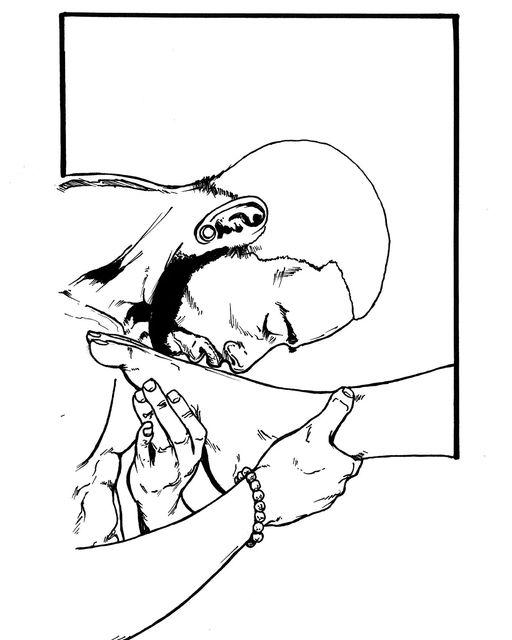
Grip
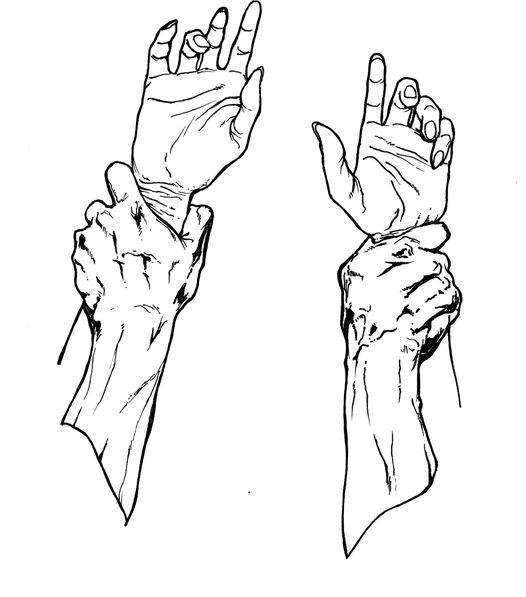
Third eye kiss
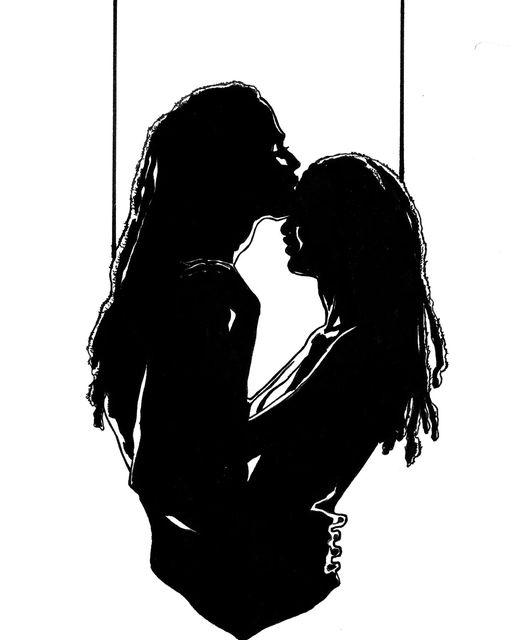
More
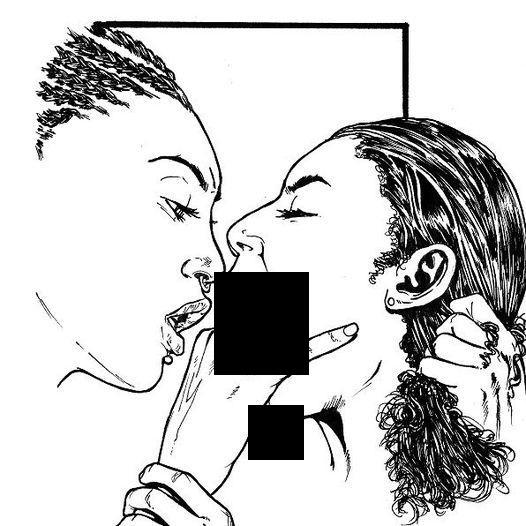
submission
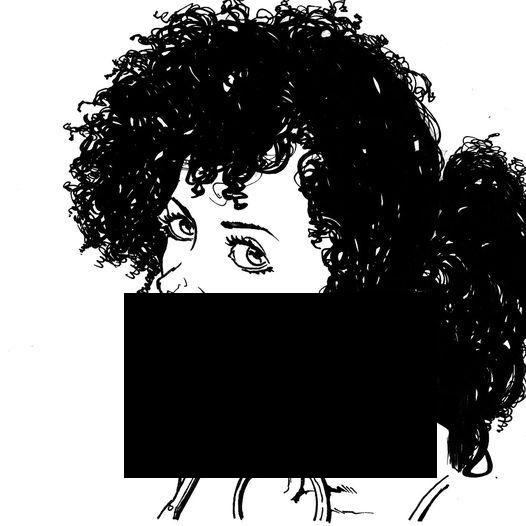
-
Shawn Alleyne < Pyroglyphics Studio > OR < https://www.deviantart.com/pyroglyphics1 > - entries from his january series
The spot

Almost

Worship

Grip

Third eye kiss

More

submission

-
#openpulpit Eric Adams/NYCC signed a law that allows a noncitizen/permanent resident NC/PR who has not been sentenced for a crime in 30 days to vote for elections in NYC,agree? NC/PR of NYC will not be able to vote for NYS/Federal. please state the city you live in the comments
-
Shawn Alleyne < Pyroglyphics Studio > OR < https://www.deviantart.com/pyroglyphics1 > - entries from his january series
The spot

Almost

Worship

Grip

Third eye kiss

More

submission

-
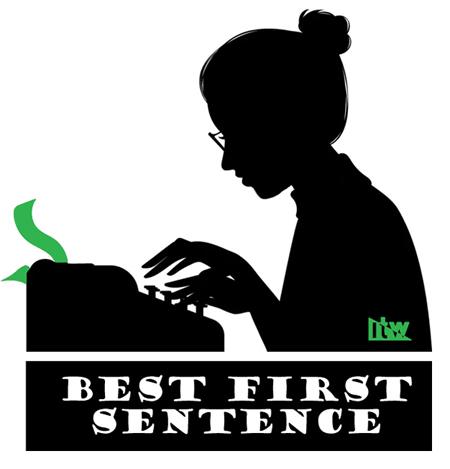
The ThrillerFest XVII - 2022 conference will be held at the
Sheraton New York Times Square Hotel
from May 31 - June 4, 2022.Enter our free and fun Best First Sentence Contest!
Each winner will receive a 10-page critique from one of the teachers of the Master Class. The deadline for entries is May 1, 2022.To enter the 2022 Best First sentence contest, please email your submissions to bestfirstsentence@gmail.com. You may only submit one entry. To qualify for entry you must be an ITW member or registered for ThrillerFest XVII (2022). Winners will be announced on Wednesday, June 1, 2022, at the CraftFest Luncheon and on social media. All winners will be notified shortly thereafter via email.
A few winning samples from the 2021 cohort:My mom told me I could do whatever I wanted for the whole summer I was fourteen, so I decided to find the Red Rock serial killer. – Melissa Yi
She sat on the rocking chair with the bloody knife in her lap and listened to the chorus of frogs while she waited. – Diane Bator
Beast was the name her mother gave her. – Matt Leyshon
-
FROM : MAd SKillz < skillzva on facebook>
I may get crucified for this but its how I feel.(just jokes)
 I grew up in a similar situation...no father tho. And I NEVER IN MY LIFE seen a woman with this many morals. EVERRR BRUH. Being that poor and having those kind of morals never made sense to me. Black Jesus brought yall good luck? You made James take him down. James finds 5k? You make him give it back. They wanted yo ass to star in a PAID Vita Brite commercial? You didnt do it cuz it had alcohol in it. James going to the pool hall cuz yall bout to get evicted? You made him put the pool stick back. They pass JJ up to the 12th grade? You made him go back to the 11th. Preacher wanted to take James on the road to do the "Im healed" scam? You made him stay home. The projects were not the villain of this show. FLORIDA WAS. YOU WERE THE BIGGEST HATER ON TELEVISION.
I grew up in a similar situation...no father tho. And I NEVER IN MY LIFE seen a woman with this many morals. EVERRR BRUH. Being that poor and having those kind of morals never made sense to me. Black Jesus brought yall good luck? You made James take him down. James finds 5k? You make him give it back. They wanted yo ass to star in a PAID Vita Brite commercial? You didnt do it cuz it had alcohol in it. James going to the pool hall cuz yall bout to get evicted? You made him put the pool stick back. They pass JJ up to the 12th grade? You made him go back to the 11th. Preacher wanted to take James on the road to do the "Im healed" scam? You made him stay home. The projects were not the villain of this show. FLORIDA WAS. YOU WERE THE BIGGEST HATER ON TELEVISION. 

 check my story for the proof.
check my story for the proof.
MY REPLY
Where do I begin?
Lets start with his points and he made many.
I will iterate the points
POINTS
1) he grew up similar to the scenario in good times, and he mentioned no father specificially.
2) he never knew a woman with this many morals
3) being fiscal bottom and having high morals never made sense.
4) the projects, the white system, wasn't the criminal, Florida, the specific moralled black matriarch wasMY THOUGHTS TO EAH POINT
1)If I ask the average person in the usa today, who are the richest people in the usa as a group, what is their phenotype. They will say, most fiscally rich people are white, a label referring to their average skin tone , which does merge into the mulatto range, ala passing. The next question is, how do they get their money? Most will say the truth, inheritance, their forebears had money and gave it to them.
Now, if I ask most people, why are black people poor? Most will say, Black people don't know how to play the game. Black people are lazy. Black people need to improve themselves, learn to strive more. Few will say the simple truth, Black people have no one to inherit money from. The next question is why? And this goes to history.
One of the problems with the black community in media, is that our poverty is rarely comprehended as simple as it needs to be. Two cultural institutions in the usa didn't allow for black inheritance. First was slavery, second was jim crow. Slavery predates the usa, which is another truth I find most in the usa don't seem to comprehend. Slavery is from the european colonial era but it survived in tact , unblemished, after the creation of the articles of confederation or the constitution, thus why most free blacks fought against the usa in its earliest wars. Slavery ended with the thirteeth amendments and the destruction of the southern states, and the desire of the northern states to eliminate the financial competition with a slave based society utilizing industrial tools. But after a very short respite <solid seven years > called reconstruction commonly, Jim Crow was born from the dead carcass of slavery and continued the goal of denying inheritance to black people.
That is why the black community in the usa is fiscally poor. Jim crow ended , in my assessment, in the 1980s. So from before the usa was founded till the 1980s, Black people were in majority <yes, exceptions always exist in life but they are not stnadards or pathways or rules> denied inheritance. The projects themselves were never meant for black people. If you know the history of the projects, they were meant for poor working whites to have a place in an urban setting to refind their fiscal bearings, starting in the 1950s. White flight from big cities and continual movement to big cities by non whites made the white city governments change course and offer projects as dens for people not white mostly to congregate in the city. A eternal source of cheap labor and fiscally poor people. Whereas projects in the 1950s had storefronts, the latter ones did away with that and just became housing.
Did you know that when the vietnam war ended, vietnam had hundreds of thousands of orphans from usa soldiers and vietnamese women living in orphanges? now, why does this matter?
It connects to slavery/jim crow, and relationships between child bearers. Slavery plus Jim crow denied inheritance for black people. The primary tool was violence. but a secondary tool was separation. To be blunt, during slavery black people were not married in majority. Black women were property of the master. the master, to use crude language, tapped that ass , more than the property of the white man she called her black husband. So since the community of the usa is from the european imperial era, for most of the history of the usa or what preceded it , black children have not had either parent. I am not saying that to reject anyone's emotions, but to bring a historical reality to black people's narrative around child raising which rarely admits reality about our community in the usa. Jim crow is what rebuilt the south and spurred the usa industrial machine. That is another historical fact that goes absent. Jim crow was powered by black men in prison on false charges. These men were given sentences meant to be for life, for the purpose of rebuilding the usa. The 13th amendment says slavery can still exist in prisons so white people in power ushered black people, specifically black men, into prisons.
I was raised by both my parents who are still together and loving, through many challenges. And my family is upper poor, not the fiscal bottom.
But, white or black filmmakers push two narratives, for different reasons that are lies. The narratives are: black people's poverty is a modern thing not from a lack of inheritance over centuries, the black family unit has its members to blame for its history of fissure.
Good times, written by whites, uniquely has a loving black father, who died because of Amos disagreement with the studios. But his death fits the truth, the environment for the black community which has been engineered by whites over centuries has successfully hindered black people, is not meant to, has hindered. And, the black people who traveled to the north to escape being burned alive and possibly find work, found fewer fires up north but less fiscal potential. But whether in the south or north the reason is a lack of inheritance, not lazyness or anything else.2)+3) I must combine. His comments prove how many black people either do not know the history of black people in the usa or have a false interpretation of it.
The Club Women was a group of black christian women who believed that if black people educated themselves and showed utmost manner that will overcome white violence. The sit-ins was based on a similar principle. This was black people saying I will go into a story where a sign outside says for people like me to NOT ENTER. The result is obvious, you enter a place where you are told by its owners for you not to come, you get your ass beat. Hell, most people know about romeo or juliet but what do you think the capulets and the mantagues were like? What is funny about the usa and the sit-ins and the club women is how , in human history it is so common for groups of people to ban others. In northern ireland they have many places where catholics can't go and protestants can't go.
So, When he says he didn't know any woman with this many morals, I will not deny his statement. But it proves he didn't know enough older black people who could tell him of many who did such things. Remember, non violence isn't merely about the white man not being violent to blacks but it is about blacks not being violent ourselves even when faced with reason to be.
Most black leaders, including MLK jr, never prescribed to such extreme views of non violence personally. but, the black community in the usa from the time of reconstruction has a long history of it.
Now is, Florida a caricature? of course she is. BUT, she reflects the truth of the black community from the end of the war between the states to the 1970s. I know that some black people who were land owners told relatives to not fight whites and sent them away. I do not concur to the idea of fighting wars with morals, but that was and is a residual from slavery and jim crow.
And that comes to his dysfunctional allusion. Black people were not merely poor during slavery or jim crow, we were impotent. Fiscal poverty is one thing, but when one is fiscally poor PLUS under constant assault. It changes ow you view things. Again, I can tell you I know of black people off line who were alive in decades past and admitted that every black women in their town was raped by whites. every black woman.
When your community is under assault , and under watch for any action that is deemed illegal /criminal/amoral, it can teach you to desire morality not for god but for self. if you can't stop your wife from being raped, your child from being spat at, yourself, from being put in prison, and you don't have arms, you don't have resources, you don't have a community enabled, then following a higher moral code can be deciphered as your only defense.
Again, Florida is a caricature, but what she represents is truth. Any one's Esther Rolle's character's age knew that the system will destroy any black person it finds doing a simple crime. My great proof of that is the rockefeller laws, initiated in the 1970s. In NYC, white men could sell cocaine in mountainfulls and get lesser to no sentence that black men selling a bag of marijuana. That is why Florida feared crime, feared illegality. IT wasn't cause she feared or opposed money. But what if? What if the white man knew? what if the white man discovered? Just remember, the chicago police department went into fred hamptons house and murdered him, absent any crime. In that kind of environment, you are so keen to risk?
Some, yes, but Florida is not that big a caricature. She is, but not that big a caricature based on the black community in the usa.
The problem with black or white filmmakers is black goodness is touted as religious, spiritual, never historical, never based on life.
The goodness isn't about christianity , it is about a fear of the system treating you unfairly, which it will, which it proved over centuries it will do and is still doing. Movies from all sort of directorso or writers make is religious, and that is the flaw. Florida is scared. She has been scared her entire life and will die scared.
In the great Daughters of the Dust, the gullah live in those spare island lands, surrounded by bayou and absent any infrastructure, but will rather that than live exposed to whites. That is fear. The people of Tracadie in nova scotia, survived cause they lived so far away , in a wilderness, they were free from assault, whether they committed an illegality or not, and that is why Florida feared in her urban project surrounded by whites, in the heart of the white kingdom.
His point is to invalidate her fears by suggesting her morality is based on morals, but her morals are based on fear.4)LAstly, his final thought. The criminal wasn't the white system , it is the black moralled matriarch.
Of course he is wrong, he admitted he is joking. But, I will defend his hypothesis with a little fortune telling. Slavery plus Jim crow denied black inheritance. But, after jim crow, I will call it the rainbow era, Black people in the usa have acquired and started to inherit fiscal wealth. Florida's fears was suitable in the days where black people were denied by white people the ability to inherit fiscal wealth. But, when one is wealthy, one must take risks, and though most risks fail in fiscal capitalism , some will succeed.
The black community isn't potent. My proof is simple. Name me one city with a financial growth in the usa, where over half the cities fiscal quality/industry is owned by blacks? I will help you, you can't find one. So, Black people are not in some place of suitability yet. But, it will happen eventually. That is why whites blockaded black inheritance. when one inherits, money is different.
Back to movies, hollywood hasn't found a way to approvingly display multiracial wealth. We all know in modernity, black millionaires or billionaires exists in the usa. But, hollywood usually places fiscally wealthy black characters in fiscally white characters roles. The problem storytelling wise is simple. Being rich is being rich but in different communities, the collective path to being rich matters. The black fiscal elite, live as gluttonous as the white, but they have subtle variances and hollywood or independent film, has not found a set of films to visualize that difference. In the show atlanta, the black rich are ugly, but mirrors of white rich and that is not exactly true. As F Scott fitzgerald said, the wicked rich, I concur to that, but they have variances. My proof is fiscally rich white jews in film. in films, fiscally rich white jews are as corrupt as other fiscally rich white people but their is anuance to their design which shows, the other.
Films have yet , black or white made, to solidify the other aspect to the black fiscal rich which is clear to see, but not such a great selling pointIN CONCLUSION, history is important, but also challenging. The challenge in history is when it forces you to look at scenarios you can't control or undo that are not merely negative, but have a lasting communal impact. The nonviolent community , based in the black church, near 170 years ago, rejected violence, rejected a mass movement away, rejected a foscused movement in the usa. The nonviolent movement had three main strategies. No violence against whites, a focus on individual liberty to black people wherever we live, a responsibility on black individuals or the black community to maintain the nonviolent stance while moving ever upward in the fiscal or governmental halls in the usa.
Today is the result of that plan in the usa. it didn't fit all black people, it wans't meant to. It had casualty, though all black paths were and will have casualties. But, in the same way, Florida is chided while Mrs. Huxtable is beloved, the modern reality has meant a cultural precipice has been reached that isn't defined by either woman or their larger media spaces. Neither is an enemy, but neither reflect a black community that can finally , in peace, inherit. -
A story of a lady
-

Interesting points, I Quote the article in double brackets , comment to each quote in double colons
<<Some writers think the protagonist’s “flaw” will cause the reader to turn away from the character and dismiss them, but in reality, the opposite is true: It’s what causes the reader to relate, and lean in.>>
:: not all readers, i am one that doesn't like the constant internal troubles in characters, it is very manufactured::<<If you’re writing a novel, I’d love to hear from you on this. What is your protagonist’s internal issue? And how does this issue stand between them and their goal in the story?>>
:: check out the article
https://www.janefriedman.com/what-makes-a-story-feel-like-a-story/
::
In conclusion, I think readers taste, buying readers taste, in a modernity where people have lessened their travel , even outside their home in their local community, has influenced the desire in buying readers to see internal conflict, reflecting the growing internal conflict in readers. -
Someone ask me: what will the novels of the future be if all the protagonists do everything online? You wouldn‘t have the romcoms with Julia Roberts meeting Hugh Grant in a bookshop…
He originally asked me but i feel the question is good for all to answer
My answer is in sections: epistlary fiction/subordinate characters/the modern readership-viewership-listenership
Epistles are merely letters and online communication, whether people want to admit it or not are letters. Human beings are accustomed to epistlary work. Many segments of the bible are letters. Books of letters , linear or alinear temporally, were a fiscally profitable genre in various times in the white european literary industry<said industry includes the usa or australia>. Historically, precedence exist for financial viability of or customer desire to epistlary fiction.
Modern customers of fiction love the visual,they love visual description, pseudo realism, fantastical visions. At the core of epistle is the letters are not bound to give all details, to explain all events. Writers can choose that path of creation but it isn't mandatory. Sequentially, why many writers use letters as tools for a specific purpose in a non epistlary work. But, if all the protagonists and I add antagonists use letters, then for action , descriptive action, you need subordinate characters. not supporting but subordinate. to be blunt, you need robots, you need characters that can not act alone or are extensions of the protagonists or antagonists but individual enough to have a physical identity one can write about. In parallel, think of a doctor that performs surgery remotely. The doctor actions are in the same way as writing a letter, the machine that translates the doctors motions/words/typing into action on the patient, while it does not act absent impetus from the doctor is had individual elements. its programming/its energy/its maintenance/ its environment all can have a positive or negative influence on itself that can lead to scenarios many will call drama or definitely action. But they are not protagonists or antagonists.
Customers matter, they always have and always will. Art has no bounds. Many people today apply their opinions as rules of art but the truth is, art has no ruleset to it. In parallel, making money with art is where all the judgements have value and where many artists or readers , do not speak enough of their purpose in their judgements. to that end, the modern readership , as the questioner stated individually had problems with epistlary fiction. But the reason is complex.... Most human beings are not online nor do they have money. But to the humans who have money, many are online, many are multilingual. The buyers are used to reading epistlaries every day, tweet streams, facebook streams, instagram comment streams are all epistlaries. not written by a steven king or jk rowling, but a sequence of unknown strangers, but the readers are used to reading epistlaries full of drama.
I conclude with a question, based on what was said, what kind of work epistlary can bridge what the customers do every day, with fictional characters? In the film world you already see movies that use message screens in the films. Like any style, when it doesn't have many financially successful examples, the judgement passion in literary or art circles is silent cause they have nothing to base a judgement on. So, it is an open multilog financially, like writing modern epistles with online messages.
Now, what say you all?
-
Someone ask me: what will the novels of the future be if all the protagonists do everything online? You wouldn‘t have the romcoms with Julia Roberts meeting Hugh Grant in a bookshop…
He originally asked me but i feel the question is good for all to answer
My answer is in sections: epistlary fiction/subordinate characters/the modern readership-viewership-listenership
Epistles are merely letters and online communication, whether people want to admit it or not are letters. Human beings are accustomed to epistlary work. Many segments of the bible are letters. Books of letters , linear or alinear temporally, were a fiscally profitable genre in various times in the white european literary industry<said industry includes the usa or australia>. Historically, precedence exist for financial viability of or customer desire to epistlary fiction.
Modern customers of fiction love the visual,they love visual description, pseudo realism, fantastical visions. At the core of epistle is the letters are not bound to give all details, to explain all events. Writers can choose that path of creation but it isn't mandatory. Sequentially, why many writers use letters as tools for a specific purpose in a non epistlary work. But, if all the protagonists and I add antagonists use letters, then for action , descriptive action, you need subordinate characters. not supporting but subordinate. to be blunt, you need robots, you need characters that can not act alone or are extensions of the protagonists or antagonists but individual enough to have a physical identity one can write about. In parallel, think of a doctor that performs surgery remotely. The doctor actions are in the same way as writing a letter, the machine that translates the doctors motions/words/typing into action on the patient, while it does not act absent impetus from the doctor is had individual elements. its programming/its energy/its maintenance/ its environment all can have a positive or negative influence on itself that can lead to scenarios many will call drama or definitely action. But they are not protagonists or antagonists.
Customers matter, they always have and always will. Art has no bounds. Many people today apply their opinions as rules of art but the truth is, art has no ruleset to it. In parallel, making money with art is where all the judgements have value and where many artists or readers , do not speak enough of their purpose in their judgements. to that end, the modern readership , as the questioner stated individually had problems with epistlary fiction. But the reason is complex.... Most human beings are not online nor do they have money. But to the humans who have money, many are online, many are multilingual. The buyers are used to reading epistlaries every day, tweet streams, facebook streams, instagram comment streams are all epistlaries. not written by a steven king or jk rowling, but a sequence of unknown strangers, but the readers are used to reading epistlaries full of drama.
I conclude with a question, based on what was said, what kind of work epistlary can bridge what the customers do every day, with fictional characters? In the film world you already see movies that use message screens in the films. Like any style, when it doesn't have many financially successful examples, the judgement passion in literary or art circles is silent cause they have nothing to base a judgement on. So, it is an open multilog financially, like writing modern epistles with online messages.
Now, what say you all?
-
Someone ask me: what will the novels of the future be if all the protagonists do everything online? You wouldn‘t have the romcoms with Julia Roberts meeting Hugh Grant in a bookshop…
He originally asked me but i feel the question is good for all to answer
My answer is in sections: epistlary fiction/subordinate characters/the modern readership-viewership-listenership
Epistles are merely letters and online communication, whether people want to admit it or not are letters. Human beings are accustomed to epistlary work. Many segments of the bible are letters. Books of letters , linear or alinear temporally, were a fiscally profitable genre in various times in the white european literary industry<said industry includes the usa or australia>. Historically, precedence exist for financial viability of or customer desire to epistlary fiction.
Modern customers of fiction love the visual,they love visual description, pseudo realism, fantastical visions. At the core of epistle is the letters are not bound to give all details, to explain all events. Writers can choose that path of creation but it isn't mandatory. Sequentially, why many writers use letters as tools for a specific purpose in a non epistlary work. But, if all the protagonists and I add antagonists use letters, then for action , descriptive action, you need subordinate characters. not supporting but subordinate. to be blunt, you need robots, you need characters that can not act alone or are extensions of the protagonists or antagonists but individual enough to have a physical identity one can write about. In parallel, think of a doctor that performs surgery remotely. The doctor actions are in the same way as writing a letter, the machine that translates the doctors motions/words/typing into action on the patient, while it does not act absent impetus from the doctor is had individual elements. its programming/its energy/its maintenance/ its environment all can have a positive or negative influence on itself that can lead to scenarios many will call drama or definitely action. But they are not protagonists or antagonists.
Customers matter, they always have and always will. Art has no bounds. Many people today apply their opinions as rules of art but the truth is, art has no ruleset to it. In parallel, making money with art is where all the judgements have value and where many artists or readers , do not speak enough of their purpose in their judgements. to that end, the modern readership , as the questioner stated individually had problems with epistlary fiction. But the reason is complex.... Most human beings are not online nor do they have money. But to the humans who have money, many are online, many are multilingual. The buyers are used to reading epistlaries every day, tweet streams, facebook streams, instagram comment streams are all epistlaries. not written by a steven king or jk rowling, but a sequence of unknown strangers, but the readers are used to reading epistlaries full of drama.
I conclude with a question, based on what was said, what kind of work epistlary can bridge what the customers do every day, with fictional characters? In the film world you already see movies that use message screens in the films. Like any style, when it doesn't have many financially successful examples, the judgement passion in literary or art circles is silent cause they have nothing to base a judgement on. So, it is an open multilog financially, like writing modern epistles with online messages.
Now, what say you all?
-
Someone ask me: what will the novels of the future be if all the protagonists do everything online? You wouldn‘t have the romcoms with Julia Roberts meeting Hugh Grant in a bookshop…
He originally asked me but i feel the question is good for all to answer
My answer is in sections: epistlary fiction/subordinate characters/the modern readership-viewership-listenership
Epistles are merely letters and online communication, whether people want to admit it or not are letters. Human beings are accustomed to epistlary work. Many segments of the bible are letters. Books of letters , linear or alinear temporally, were a fiscally profitable genre in various times in the white european literary industry<said industry includes the usa or australia>. Historically, precedence exist for financial viability of or customer desire to epistlary fiction.
Modern customers of fiction love the visual,they love visual description, pseudo realism, fantastical visions. At the core of epistle is the letters are not bound to give all details, to explain all events. Writers can choose that path of creation but it isn't mandatory. Sequentially, why many writers use letters as tools for a specific purpose in a non epistlary work. But, if all the protagonists and I add antagonists use letters, then for action , descriptive action, you need subordinate characters. not supporting but subordinate. to be blunt, you need robots, you need characters that can not act alone or are extensions of the protagonists or antagonists but individual enough to have a physical identity one can write about. In parallel, think of a doctor that performs surgery remotely. The doctor actions are in the same way as writing a letter, the machine that translates the doctors motions/words/typing into action on the patient, while it does not act absent impetus from the doctor is had individual elements. its programming/its energy/its maintenance/ its environment all can have a positive or negative influence on itself that can lead to scenarios many will call drama or definitely action. But they are not protagonists or antagonists.
Customers matter, they always have and always will. Art has no bounds. Many people today apply their opinions as rules of art but the truth is, art has no ruleset to it. In parallel, making money with art is where all the judgements have value and where many artists or readers , do not speak enough of their purpose in their judgements. to that end, the modern readership , as the questioner stated individually had problems with epistlary fiction. But the reason is complex.... Most human beings are not online nor do they have money. But to the humans who have money, many are online, many are multilingual. The buyers are used to reading epistlaries every day, tweet streams, facebook streams, instagram comment streams are all epistlaries. not written by a steven king or jk rowling, but a sequence of unknown strangers, but the readers are used to reading epistlaries full of drama.
I conclude with a question, based on what was said, what kind of work epistlary can bridge what the customers do every day, with fictional characters? In the film world you already see movies that use message screens in the films. Like any style, when it doesn't have many financially successful examples, the judgement passion in literary or art circles is silent cause they have nothing to base a judgement on. So, it is an open multilog financially, like writing modern epistles with online messages.
Now, what say you all?




